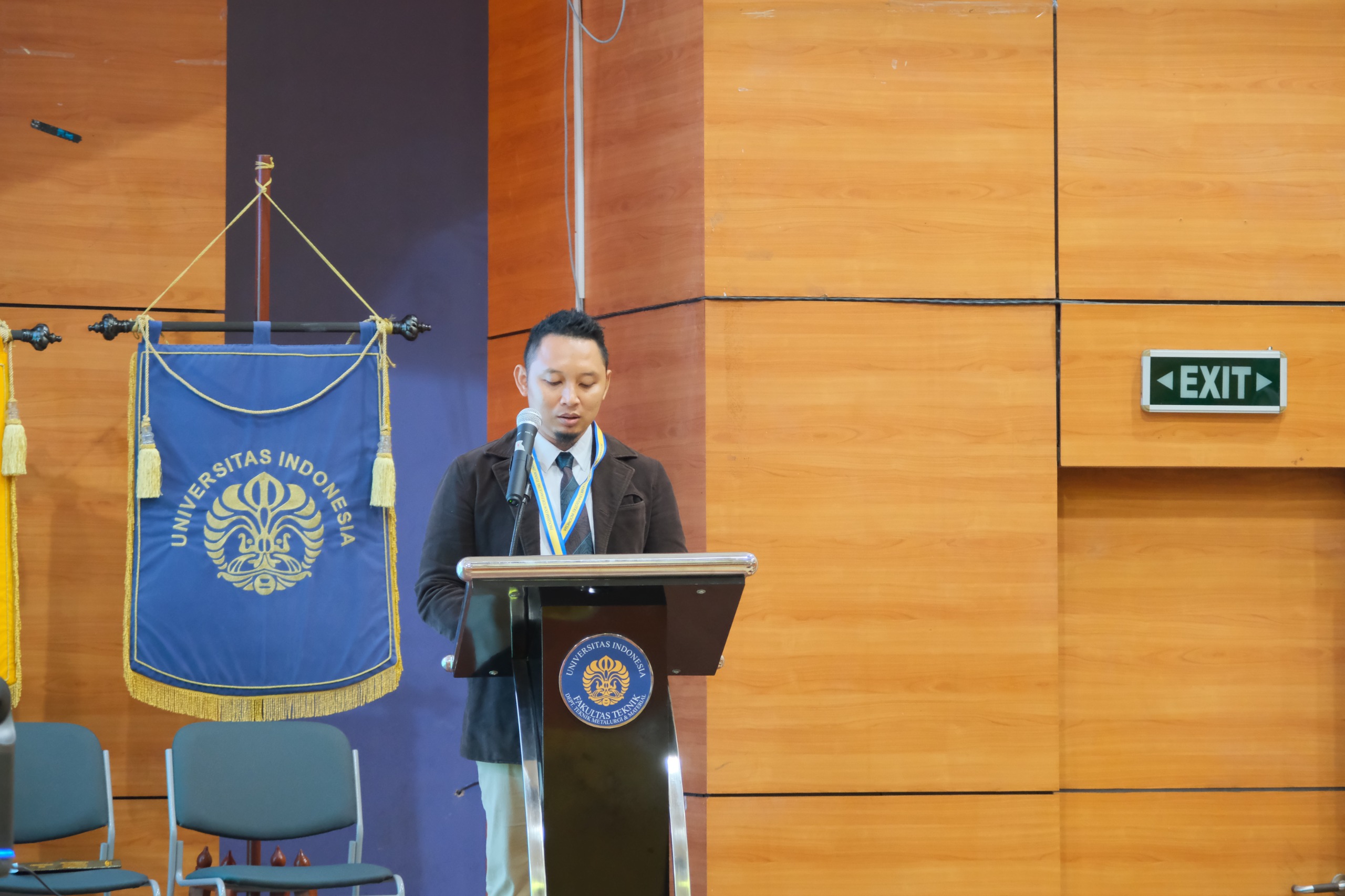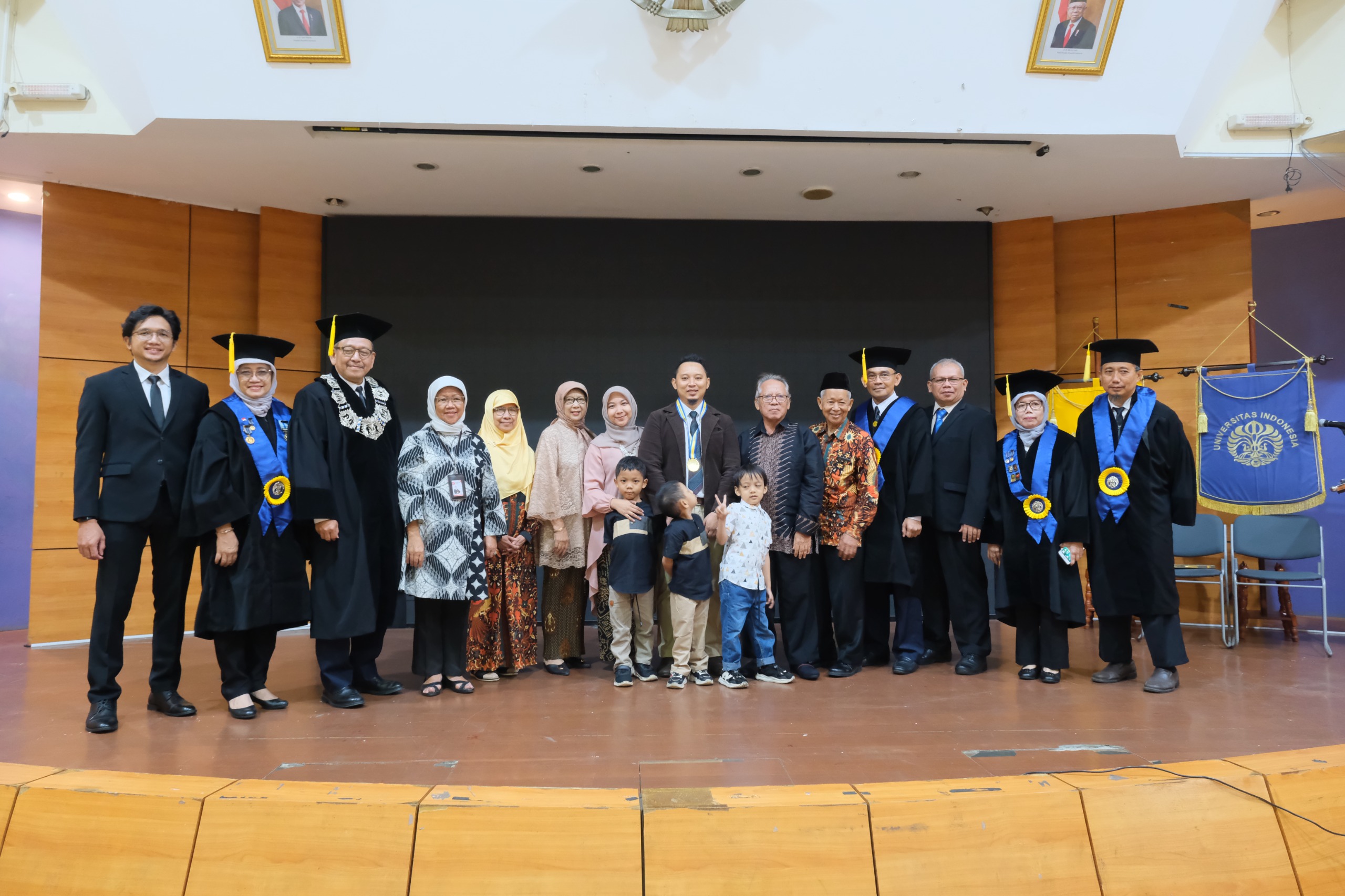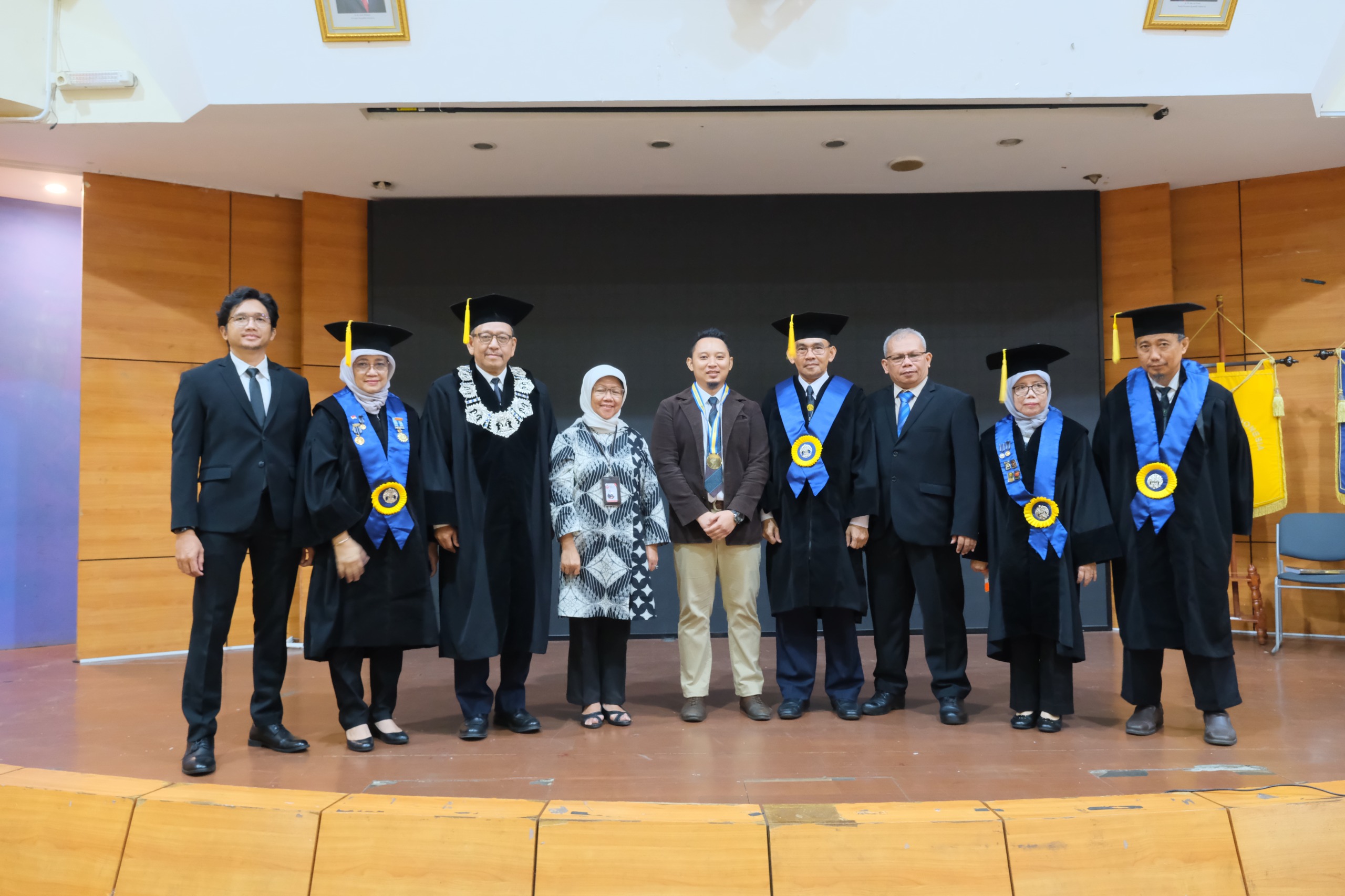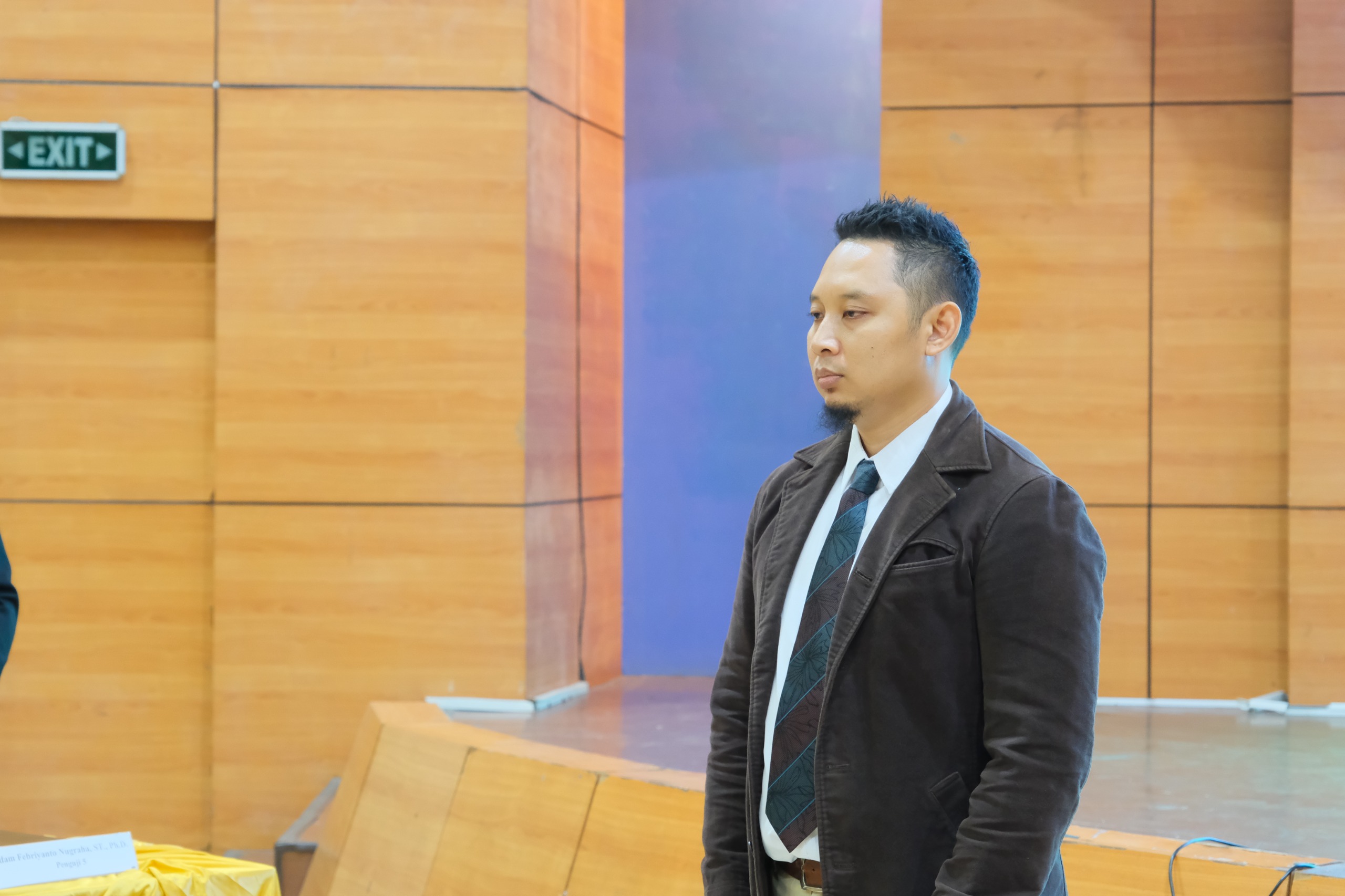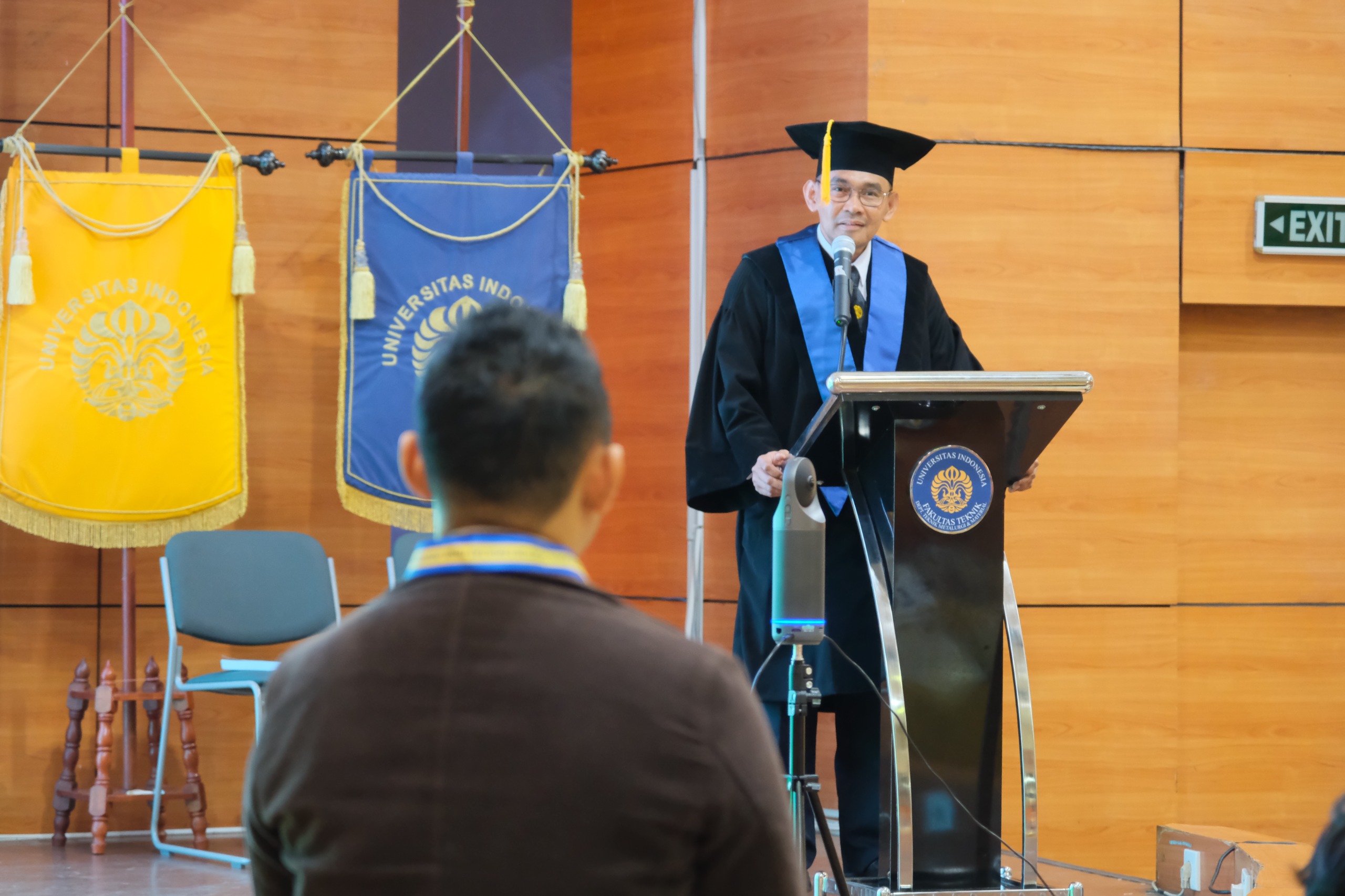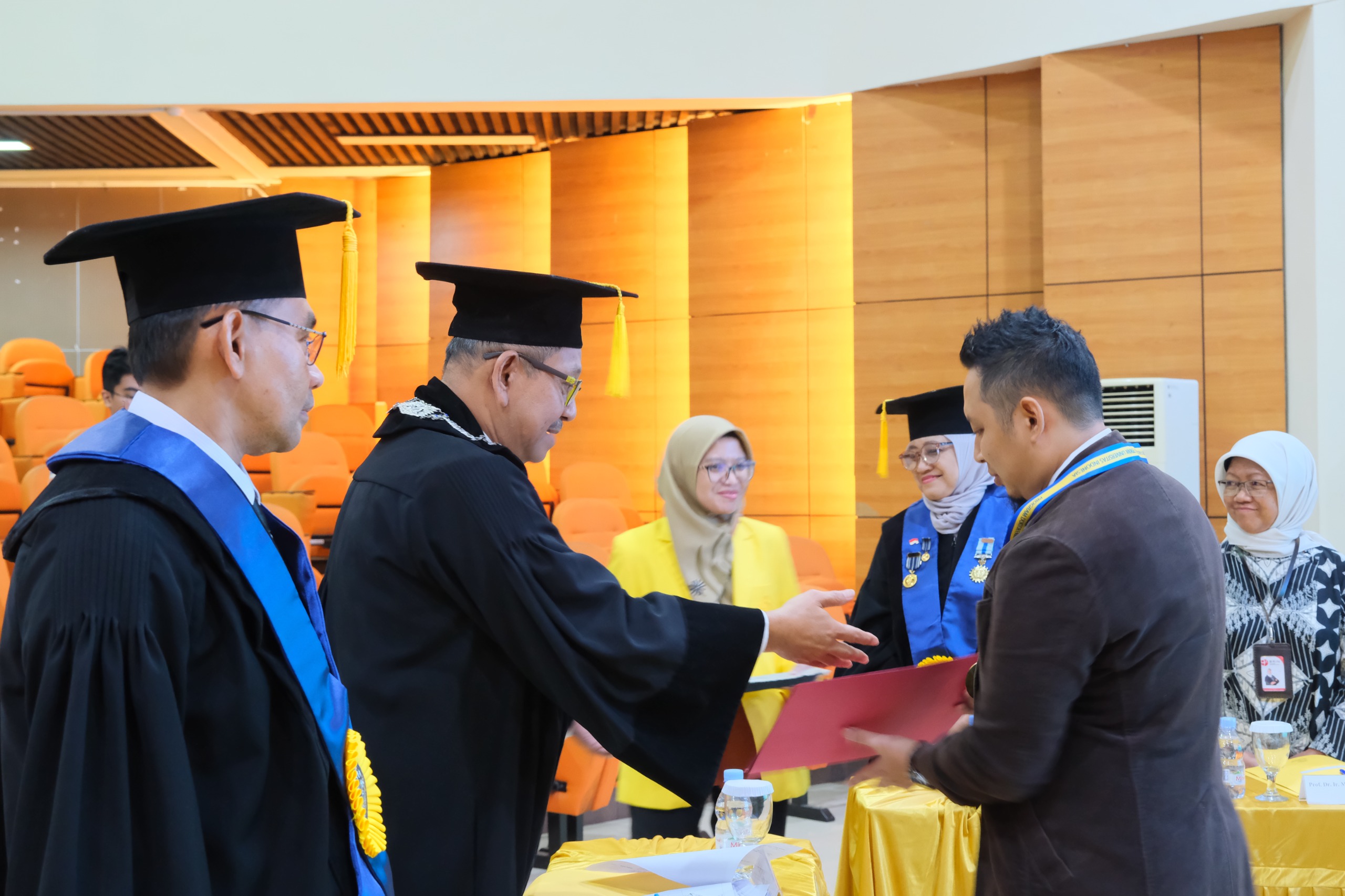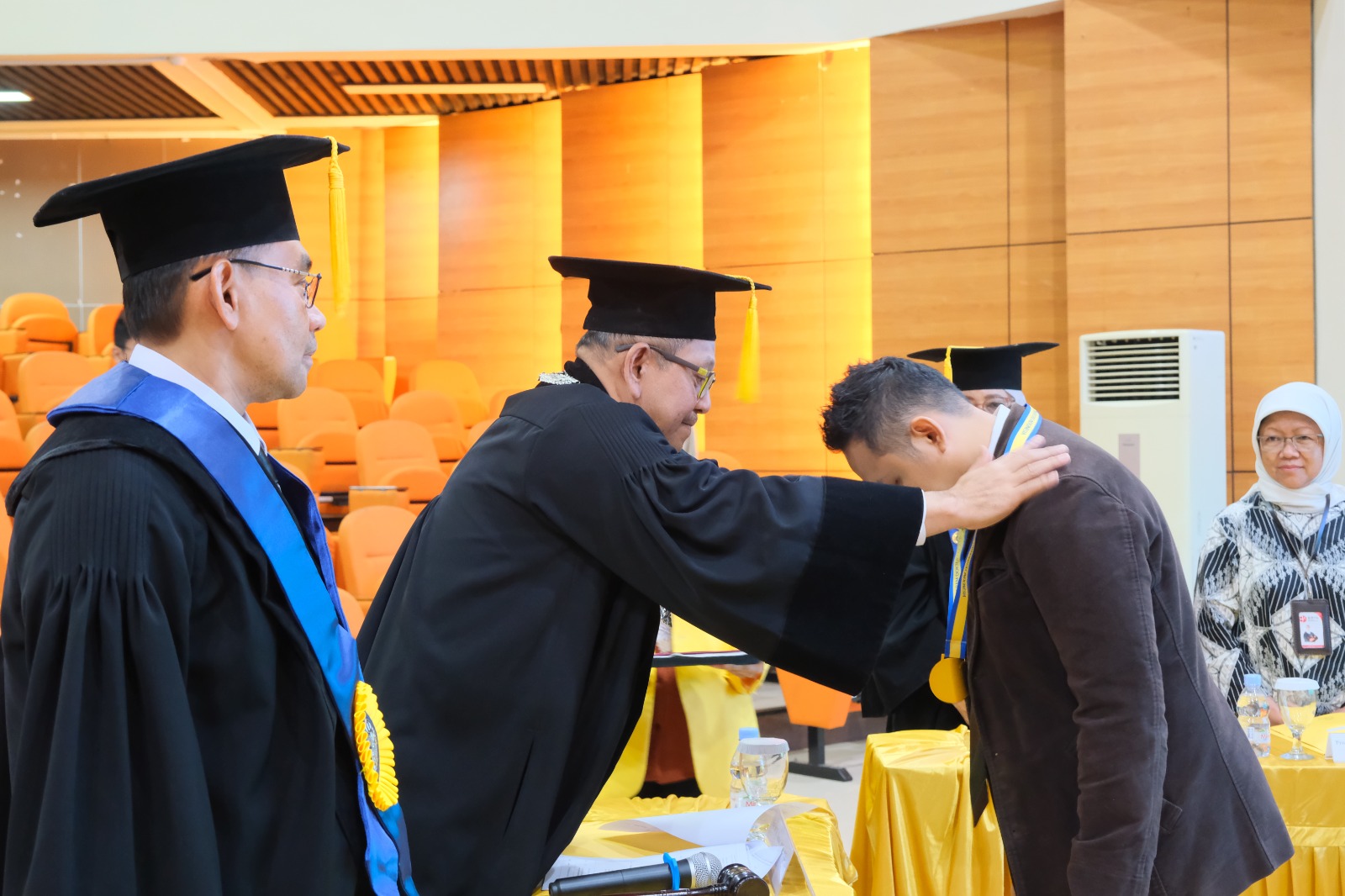On Tuesday (13/02), Achmad Nandang Roziafanto, a doctoral student in the Department of Metallurgical and Materials Engineering at the Faculty of Engineering, University of Indonesia (DTMM FTUI), presented the results of his research on biocomposites using natural fibres. Natural fibres are an interesting alternative to synthetic fibres in their application to polymer composite structures. However, the main challenge faced is the compatibility of natural fibres with synthetic polymer matrices due to the varying content of hemicellulose, cellulose, and lignin.
Recognizing this challenge, Nandang sought a solution, which he outlined in his dissertation titled “Utilization of Cellulose from Sorghum Stem Fibers (Sorghum bicolour (L.) Moench) as a Reinforcement for Polypropylene-Based Biocomposites through Glow Discharge Electrolysis Plasma Method.” In this research, Nandang isolated cellulose and modified the surface of natural fibres using the environmentally friendly Glow Discharge Electrolysis Plasma (GDEP) method to enhance fiber-matrix compatibility.
Nandang explained that his research aimed to find the optimal method for modifying the surface of sorghum stem fibres using the GDEP method. “Variations in operation time, voltage, electrolyte type, and reactor volume were evaluated to obtain optimal results in the isolation and modification of cellulose surface. Characterization of the fibres was carried out using infrared (FTIR), electron microscope (FE-SEM), X-ray (XRD), thermal analysis (STA), and sessile drop test,” Nandang clarified.
Subsequently, the processed sorghum stem fibres were blended with a polypropylene (PP) matrix to create composites with various fibre loading variations. In the mixing and composite manufacturing process, Nandang used a twin-screw extruder. From the results of this process, structural analysis of fibres and morphology showed a decrease in lignin composition after the fibres underwent GDEP treatment with optimum parameters, namely using 0.07 M NaCl electrolyte with a voltage of 600V in a 250 ml reactor for 15 minutes. This finding was supported by XRD test data indicating an increase in the crystalline fraction of sorghum stem fibres after GDEP treatment, with an optimum value reaching 59.87%.
Thermal analysis revealed that fibres treated with GDEP exhibited higher thermal stability than before, with optimum values of Td1 at 323.48°C and Td2 at 365.59°C. Additionally, in fibres processed using GDEP, the formation of stable pseudo-lignin compounds with hydrophobic properties was observed. GDEP treatment effectively reduced the lignin content in fibres by 37.28%, simultaneously modifying the fibre surface to be more hydrophobic, achievable in a single step.
“In summary, GDEP treatment on sorghum stem fibres can enhance the tensile properties of PP composites, with an optimum value at 5 phr addition reaching 32.19 MPa. This research also indicates that an increase in microfiber cellulose (MFC) loading in the PP matrix causes a decrease in composite tensile strength, while the Young’s modulus value increases. Therefore, it can be concluded that the utilization of sorghum stem fibres through the Glow Discharge Electrolysis Plasma method is effective as reinforcement in polypropylene-based biocomposites,” Nandang concluded in his presentation.
FTUI Dean, Prof. Dr. Ir. Heri Hermansyah, ST., M.Eng., IPU, gave a response to this research, stating, “In an era that increasingly demands sustainable innovation, Nandang’s research represents a progressive effort in the development of environmentally friendly materials. This research has proven to enhance the compatibility of natural fibres with synthetic polymer matrices, and it is expected to make a relevant contribution to the needs of sustainable industries.”
Thanks to his research, Achmad Nandang Roziafanto successfully earned his doctoral degree with a GPA of 4.00 and the Cumlaude predicate in his doctoral promotion session. Nandang was designated as the 70th Doctoral graduate from the Department of Metallurgical and Materials Engineering and the 542nd Doctoral graduate from FTUI. The Doctoral Promotion session was led by the Chair of the Session, Prof. Dr. Ir. Yanuar, M.Eng., M.Sc.; with the Promoter, Prof. Dr. Ir. Mochamad Chalid, S.Si, M.Si.; and Co-Promoter, Drs. Nofrijon Sofyan, M.Si, PhD. The examination team consisted of Prof. Dr. Ir. Rini Riastuti, M.Sc.; Prof. Dr. Ir. Nelson Saksono, Μ.Τ; Prof. Dr. Ir. Anne Zulfia Syahrial, M.Sc.; Prof. Dr. Ir. Myrtha Karina Sancoyorini, M.Agr; and Adam Febriyanto Nugraha, S.T., Ph.D.
***
Public Communication Office
Faculty of Engineering, University of Indonesia

